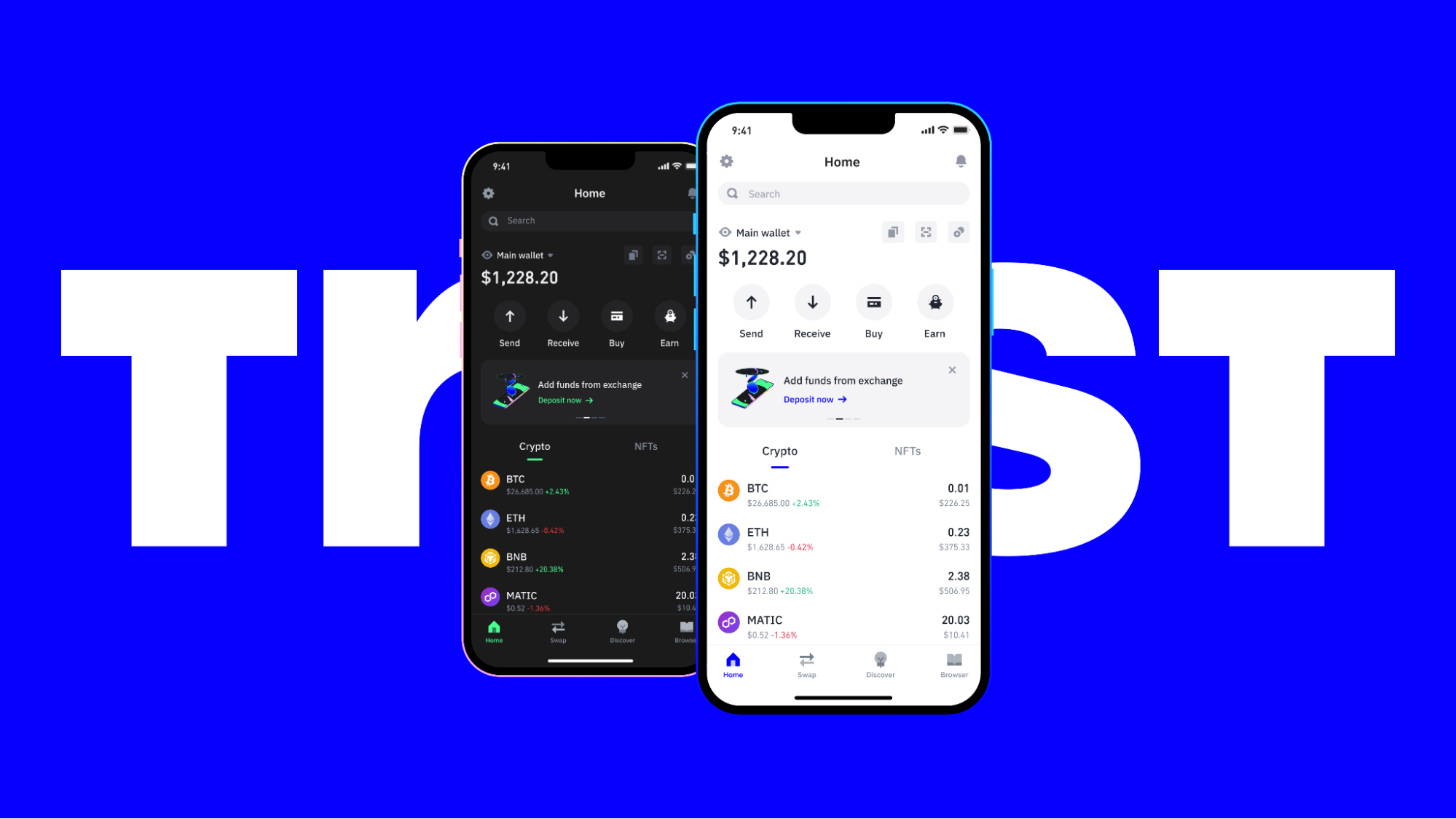In the rapidly evolving world of cryptocurrency, one of the most crucial tools for anyone involved is the crypto wallet. Whether you’re a seasoned trader or a newcomer looking to invest, a secure and efficient wallet is vital for managing your digital assets. But what exactly is a trust wallet, how does it work, and why is it so important? Let’s dive into the world of crypto wallets.
What is a Crypto Wallet?
A cryptocurrency wallet is a digital tool that allows you to store, send, and receive cryptocurrencies like Bitcoin, Ethereum, or any other digital assets. Essentially, it functions like a bank account, but for cryptocurrencies. However, unlike traditional banks, crypto wallets are decentralized, meaning you are in full control of your assets.
There are two primary types of crypto wallets:
- Hot Wallets: These are connected to the internet and are typically used for everyday transactions. They are more convenient but can be more vulnerable to hacks due to their online nature.
- Cold Wallets: These are offline storage options, providing a higher level of security for long-term storage. They are less prone to hacking but less convenient for quick access to funds.
How Does a Crypto Wallet Work?
A crypto wallet stores private and public keys, which are used to facilitate transactions. The public key is like an account number — you share it with others to receive cryptocurrency. The private key, on the other hand, is like a password or PIN — it is used to access and manage your funds. Keeping your private key secure is crucial, as anyone with access to it can control your crypto assets.
Crypto wallets are designed to interact with blockchain networks, enabling you to send and receive cryptocurrencies. When you initiate a transaction, the wallet uses your private key to sign it, verifying that you are the rightful owner of the funds. The transaction is then broadcasted to the blockchain network for validation and final processing.
Types of Crypto Wallets
- Software Wallets
- Desktop Wallets: These are software applications installed on a personal computer. They provide greater security than web-based wallets but are still vulnerable to malware and physical theft of your device.
- Mobile Wallets: These are apps for smartphones that allow you to store and manage your cryptocurrencies on the go. They are convenient but come with the risk of theft if your phone is lost or compromised.
- Web Wallets: These wallets are accessed through a web browser. They are easy to use and offer quick access to your funds, but they are susceptible to phishing attacks.
- Hardware Wallets
- These are physical devices that store your private keys offline, making them highly secure against hacking. Popular hardware wallets include Ledger and Trezor. While they require you to connect to a computer or mobile device to perform transactions, they are considered the safest option for long-term storage of cryptocurrencies.
- Paper Wallets
- A paper wallet is a physical printout or written record of your public and private keys. It is an offline option and offers one of the most secure ways to store crypto. However, it requires careful handling to avoid losing or damaging the wallet.
Why are Crypto Wallets Important?
- Security One of the main reasons to use a crypto wallet is security. Cryptocurrency transactions are irreversible, so if you lose your funds, there is no way to recover them. A wallet with proper security measures ensures your digital assets remain safe from hacks and theft.
- Ownership Control With a crypto wallet, you are in full control of your cryptocurrency. Unlike traditional banking systems, where a third party (such as a bank) manages your funds, a crypto wallet allows you to store, send, and receive funds directly. This decentralized control is one of the key advantages of cryptocurrencies.
- Convenience Crypto wallets make it easy to send and receive cryptocurrencies. Whether you’re paying for a service, investing, or transferring funds, having a wallet that suits your needs can make the process smooth and quick.
- Access to the Crypto Market Having a wallet allows you to interact with various cryptocurrency platforms and exchanges. It’s essential for trading, investing, or even engaging in decentralized finance (DeFi) activities, such as lending or borrowing cryptocurrencies.
How to Choose the Right Crypto Wallet
When selecting a crypto wallet, it’s important to consider several factors:
- Security: Look for wallets that offer strong encryption, two-factor authentication, and backup options.
- Ease of Use: Choose a wallet that suits your experience level. Beginners may prefer mobile or web wallets, while advanced users might opt for hardware wallets.
- Compatibility: Ensure the wallet supports the specific cryptocurrencies you plan to store or trade.
- Backup and Recovery: Choose a wallet that offers reliable recovery options in case your device is lost or stolen.
